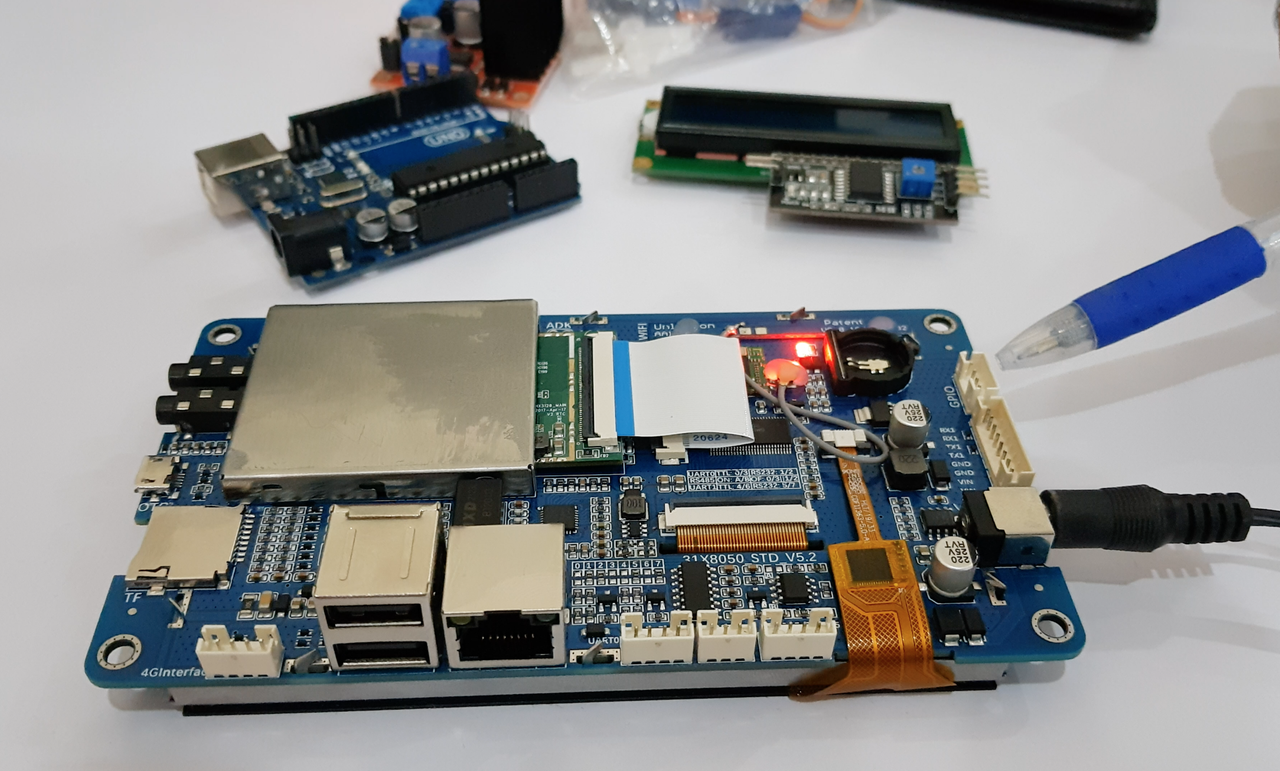serial_communication 0.0.1  serial_communication: ^0.0.1 copied to clipboard
serial_communication: ^0.0.1 copied to clipboard
An Android Plugin for Serial Communication This Plugin wants to provide a simple API to connect, read and write data through theses serial ports. Listing the available serial ports on the device, incl [...]
Serial communication! #
An Android Plugin for Serial Communication This Plugin wants to provide a simple API to connect, read and write data through theses serial ports. The supported features are:
- Listing the available serial ports on the device, including USB to serial adapters
- Configuring serial ports (baud rate, stop bits, permission, ...)
- Providing standard InputStream and OutputStream
Description #
This Plug In enables the communication with the USB RS232 RS485 UART The plugin detect the available serial ports on your device and allow you to commuincate.
Supported platforms:
- Android
Video tutorial #
In order to completely understand you can view our sample video in which we are using an android Lcm module having Click the image below to watch the video:
Getting Started #
Add a dependency to your pubspec.yaml
dependencies:
serial_communication: version
include the usbserial package at the top of your dart file.
import ‘package:serial_communication/serial_communication.dart’
🔧 Android Setup #
❓ Usage #
If you encounter any issues please refer to the API docs and the sample code in the example directory before opening a request on Github.
Example app #
The example directory has a sample application that demonstrates the features of this plugin.
Initialisation The first step is call the startSerial() method and subscribe the StreamSubscription
Start Serial #
startSerial method will open the transaction stream
@override
void initState() {
super.initState();
_serialCommunication.startSerial().listen(_updateConnectionStatus);
getSerialList();
}
void _updateConnectionStatus(SerialResponse? result) async {
logData = result!.logChannel ?? "";
receivedData = result.readChannel ?? "";
});
}
By calling the startSerial() it will provide you the SerialResponse in the form of stream data
SerialResponse In Serial Response you will get the following type 1) Log Channel (type:String) 2) Read Channel (type:String)
Log Channel: In the log channel you wll get the repsone when you open any port ,close any port , transmit data (TX).
Read Channel: In the Read channel you wll get the Recived data (RX)
Available Devices #
The getAvailablePorts() method will return you all the available device
serialList = await serialCommunication.getAvailablePorts();
Open #
openPort method will open the serial communication Its has 3 required parameter { DataFormat dataFormat, String serialPort, int baudRate }
serialCommunication.openPort(
dataFormat: DataFormat.ASCII,
serialPort: serialList.first,
baudRate: serialCommunication.baudRateList.first)
Close #
closePort method will close the port if you have opened any port
serialCommunication.closePort();
Send Command #
sendCommand method will send your message Its has 1 required parameter {String message}
serialCommunication.sendCommand(message: "message");
Clear #
clearLog method will clear the Log channel clearRead method will clear the Read channel
serialCommunication.clearLog();
serialCommunication.clearRead();
Destroy #
destroy method will destroy the resources
@override
void dispose() {
serialCommunication.destroy();
super.dispose();
}
-
Baud Rate To get the Standard baud rates list call the
SerialCommunication().baudRateListit will return the integer list of standard baud rate -
Data Format The Data format is used to convert the data type To pass the data format in the open() method parameter For ascii format call the
DataFormat.ASCIIFor hex_String format call the
DataFormat.HEX_STRING
Contribution #
Any help from the open-source community is always welcome and needed:
-
Found an issue?
- Please fill a bug report with details.
-
Wish a feature?
- Open a feature request with use cases.
-
Are you using and liking the project?
- Promote the project: create an article, do a post or make a donation.
-
Are you a developer?
- Fix a bug and send a pull request.
- Implement a new feature.
- Improve the Unit Tests.
-
Have you already helped in any way?
- Many thanks from me, the contributors and everybody that uses this project!
Maintainers #
